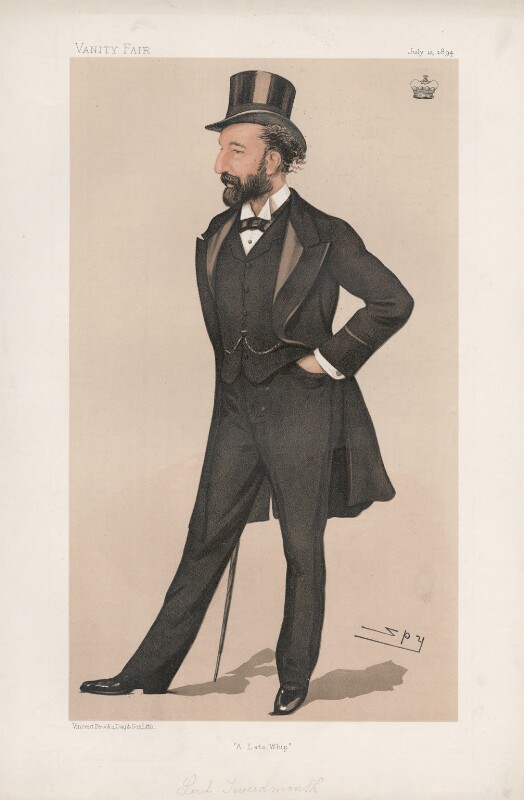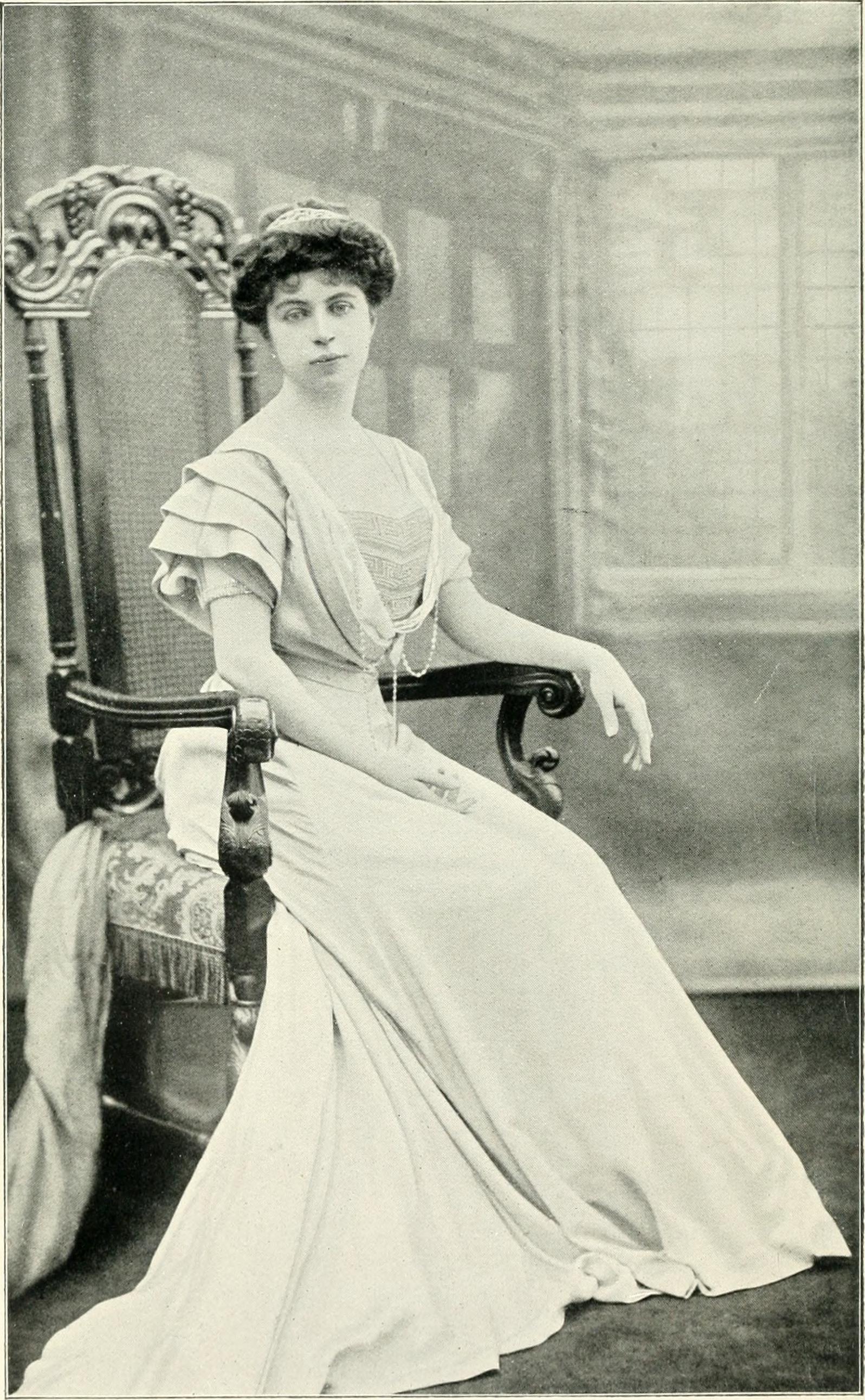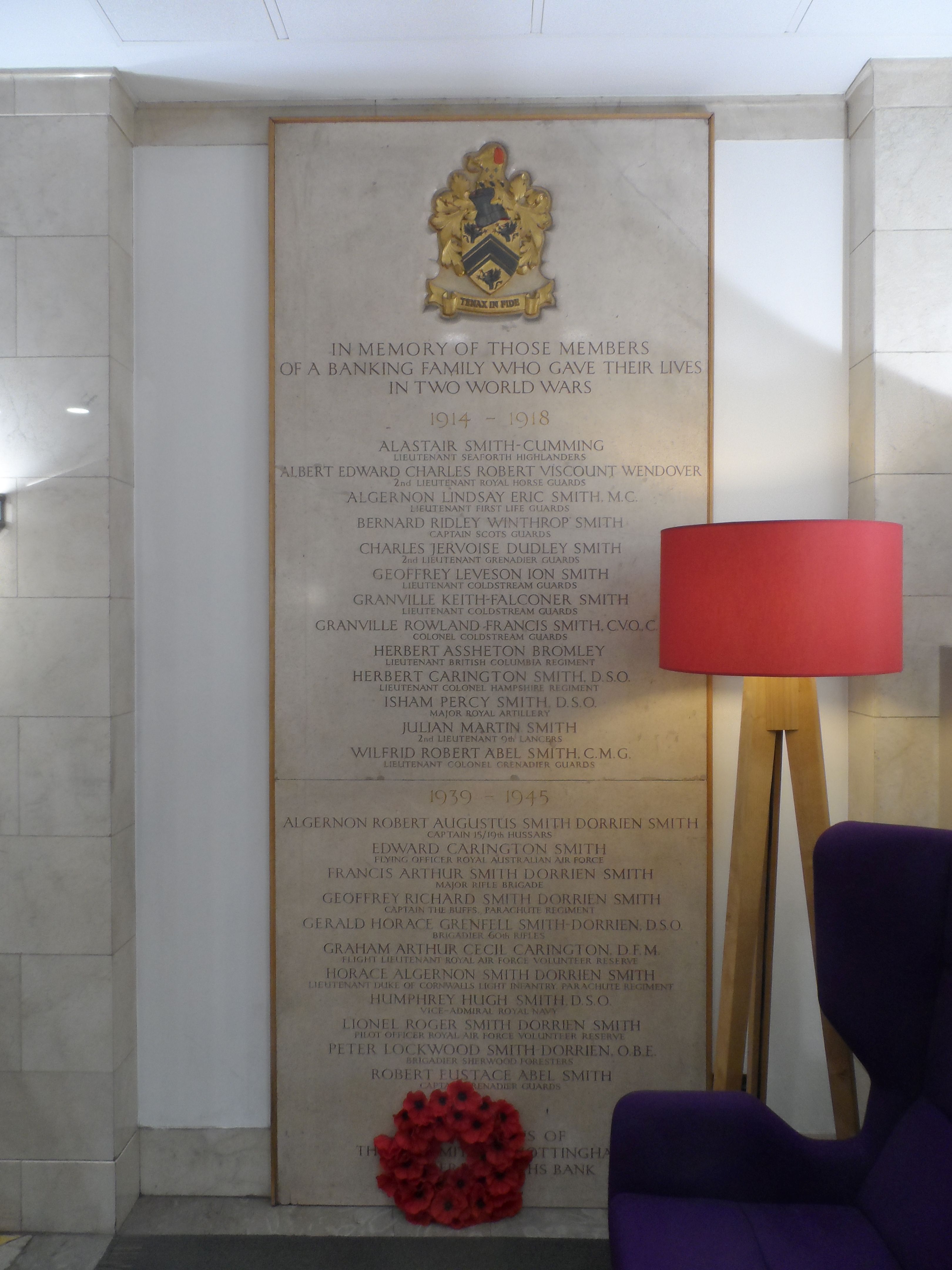|
Robert Offley Ashburton Crewe-Milnes, 1st Marquess Of Crewe
Robert Offley Ashburton Crewe-Milnes, 1st Marquess of Crewe, (12 January 185820 June 1945), known as The Honourable Robert Milnes from 1863 to 1885, The Lord Houghton from 1885 to 1895 and as The Earl of Crewe from 1895 to 1911, was a British Liberal politician, statesman and writer. Early life Robert Offley Ashburton Milnes was born at 16 Brook Street, London, Upper Brook Street, Mayfair, London, the only son of Richard Monckton Milnes, 1st Baron Houghton, by his wife the Hon. Annabella Crewe, daughter of John Crewe, 2nd Baron Crewe, and was educated firstly at Winton House, near Winchester, and then Harrow School, Harrow. He went up to Trinity College, Cambridge, graduating in 1880. Political career A Liberal Party (UK), Liberal in politics, Milnes became Assistant Private Secretary to Granville Leveson-Gower, 2nd Earl Granville, Lord Granville in April 1883 when Granville was Secretary of State for Foreign Affairs. In an 1884 by-election he was the losing Liberal candidate a ... [...More Info...] [...Related Items...] OR: [Wikipedia] [Google] [Baidu] |
The Most Honourable
The honorific prefix "The Most Honourable" is a form of address that is used in several countries. In the United Kingdom, it precedes the name of a marquess or marchioness. Overview In Jamaica, Governors-General of Jamaica, as well as their spouses, are entitled to be styled "The Most Honourable" upon receipt of the Jamaican Order of the Nation."National Awards of Jamaica" Jamaica Information Service, accessed May 12, 2015. , and their spouses, are also styled this way upon receipt of the Order of the Nation, which is only given to Jamaican Governors-General and Prime Ministers. In |
Edward Marjoribanks, 2nd Baron Tweedmouth
Edward Marjoribanks, 2nd Baron Tweedmouth, (8 July 1849 – 15 September 1909), was a moderate British Liberal Party statesman who sat in the House of Commons from 1880 until 1894 when he inherited his peerage and then sat in the House of Lords. He served in various capacities in the Liberal governments of the late 19th and early 20th centuries. Biography Tweedmouth was the son of Dudley Marjoribanks, 1st Baron Tweedmouth, and Isabella, daughter of Sir James Hogg, 1st Baronet. Ishbel Hamilton-Gordon, Marchioness of Aberdeen and Temair, was his sister. He was descended from Joseph Marjoribanks, a wine and fish merchant in Edinburgh who died in 1635 and is thought to have been the grandson of Thomas Marjoribanks of Ratho,Marjoribanks, Roger. "Marjoribanks of Lees"''The Marjoribanks Journal'' Number 3 page 14, June 1995. Accessed on 22 May 2010 head of the lowland Clan Marjoribanks. He was educated at Christ Church, Oxford, but expelled in 1870 following a prank that led to the ... [...More Info...] [...Related Items...] OR: [Wikipedia] [Google] [Baidu] |
Lord Lieutenant Of Ireland
Lord Lieutenant of Ireland (), or more formally Lieutenant General and General Governor of Ireland, was the title of the chief governor of Ireland from the Williamite Wars of 1690 until the Partition of Ireland in 1922. This spanned the Kingdom of Ireland (1541–1800) and the United Kingdom of Great Britain and Ireland (1801–1922). The office, under its various names, was often more generally known as the Viceroy, and his wife was known as the vicereine. The government of Ireland in practice was usually in the hands of the Lord Deputy up to the 17th century, and later of the Chief Secretary for Ireland. Role The Lord Lieutenant possessed a number of overlapping roles. He was * the representative of the King (the "viceroy"); * the head of the executive in Ireland; * (on occasion) a member of the English or British Cabinet; * the fount of mercy, justice and patronage; * (on occasion) commander-in-chief in Ireland. * Grand Master of the Order of St. Patrick Prior to the ... [...More Info...] [...Related Items...] OR: [Wikipedia] [Google] [Baidu] |
Lewis Harcourt, 1st Viscount Harcourt
Lewis Vernon Harcourt, 1st Viscount Harcourt (born Reginald Vernon Harcourt; 31 January 1863 – 24 February 1922), was a British Liberal Party politician who held the Cabinet post of Secretary of State for the Colonies from 1910 to 1915. Lord Harcourt's nickname was "Loulou". Early life and education Harcourt was born at Nuneham Courtenay, Oxfordshire, the only surviving son of politician Sir William Vernon Harcourt and his first wife, Maria Theresa Lister. He was originally christened with the name Reginald, in honour of his father's university friend Reginald Cholmondeley, but when George Cornewall Lewis died just over two months after, he was rechristened with the name Lewis. He never knew his mother, who died only a day after giving birth to him. His elder brother, Julian Harcourt, had died the previous year at the age of one year. He was educated at Eton. He studied Doctor of Civil Law at University of Oxford. He inherited the lordships of the manor of Stanton Harcou ... [...More Info...] [...Related Items...] OR: [Wikipedia] [Google] [Baidu] |
Victor Bruce, 9th Earl Of Elgin
Victor Alexander Bruce, 9th Earl of Elgin, 13th Earl of Kincardine, (16 May 184918 January 1917), known as Lord Bruce until 1863, was a right-wing British Liberal politician who served as Viceroy of India from 1894 to 1899. He was appointed by Prime Minister Arthur Balfour to hold an investigative enquiry into the conduct of the Boer War in 1902 to 1903. The Elgin Commission was the first of its kind in the British Empire, and it travelled to South Africa and took oral evidence from men who had actually fought in the battles. It was the first to value the lives of the dead and to consider the feelings of mourning relatives left behind, and it was the first occasion in the history of the British Army that recognised the testimony of ordinary soldiery as well as that of the officers. Background and education Elgin was born in Montreal, Canada East (now Montreal, Quebec), the son of James Bruce, 8th Earl of Elgin, who served as Governor-General of Canada at the time, and his wif ... [...More Info...] [...Related Items...] OR: [Wikipedia] [Google] [Baidu] |
Secretary Of State For The Colonies
The secretary of state for the colonies or colonial secretary was the British Cabinet minister in charge of managing the United Kingdom's various colonial dependencies. History The position was first created in 1768 to deal with the increasingly troublesome North American colonies, following passage of the Townsend Acts. Previously, colonial responsibilities were held jointly by the lords of trade and plantations and the secretary of state for the Southern Department, who was responsible for Ireland, the American colonies, and relations with the Catholic and Muslim states of Europe, as well as being jointly responsible for domestic affairs with the Secretary of State for the Northern Department. Joint responsibility continued under the secretary of state for the colonies, but led to a diminution of the board's status, and it became an adjunct to the new secretary's department. [...More Info...] [...Related Items...] OR: [Wikipedia] [Google] [Baidu] |
Austen Chamberlain
Sir Joseph Austen Chamberlain (16 October 1863 – 16 March 1937) was a British statesman, son of Joseph Chamberlain and older half-brother of Prime Minister Neville Chamberlain. He served as Chancellor of the Exchequer (twice) and was briefly Conservative Party leader before serving as Foreign Secretary. Brought up to be the political heir of his father, whom he physically resembled, he was elected to Parliament as a Liberal Unionist at a by-election in 1892, and held office in the Unionist coalition governments of 1895–1905, remaining in the Cabinet as Chancellor of the Exchequer (1903–05) after his father resigned in 1903 to campaign for Tariff Reform. After his father's disabling stroke in 1906 Austen became the leading tariff reformer in the House of Commons. Late in 1911 he and Walter Long were due to fight one another for the leadership of the Conservative Party (in succession to Arthur Balfour), but both withdrew in favour of Bonar Law rather than risk a party spli ... [...More Info...] [...Related Items...] OR: [Wikipedia] [Google] [Baidu] |
John Morley
John Morley, 1st Viscount Morley of Blackburn, (24 December 1838 – 23 September 1923) was a British Liberal statesman, writer and newspaper editor. Initially, a journalist in the North of England and then editor of the newly Liberal-leaning ''Pall Mall Gazette'' from 1880 to 1883, he was elected a Member of Parliament for the Liberal Party in 1883. He was Chief Secretary for Ireland in 1886 and between 1892 and 1895; Secretary of State for India between 1905 and 1910 and again in 1911; and Lord President of the Council between 1910 and 1914. Morley was a distinguished political commentator, and biographer of his hero, William Gladstone. Morley is best known for his writings and for his "reputation as the last of the great nineteenth-century Liberals". He opposed imperialism and the Second Boer War. He supported Home Rule for Ireland. His opposition to British entry into the First World War as an ally of Russia led him to leave the government in August 1914. Backgrou ... [...More Info...] [...Related Items...] OR: [Wikipedia] [Google] [Baidu] |
Secretary Of State For India
His (or Her) Majesty's Principal Secretary of State for India, known for short as the India Secretary or the Indian Secretary, was the British Cabinet minister and the political head of the India Office responsible for the governance of the British Indian Empire (usually known simply as 'the Raj' or British India), Aden, and Burma. The post was created in 1858 when the East India Company's rule in Bengal ended and India, except for the Princely States, was brought under the direct administration of the government in Whitehall in London, beginning the official colonial period under the British Empire. In 1937, the India Office was reorganised which separated Burma and Aden under a new Burma Office, but the same Secretary of State headed both departments and a new title was established as His Majesty's Principal Secretary of State for India and Burma. The India Office and its Secretary of State were abolished in August 1947, when the United Kingdom granted independence in th ... [...More Info...] [...Related Items...] OR: [Wikipedia] [Google] [Baidu] |
Arthur Henderson
Arthur Henderson (13 September 1863 – 20 October 1935) was a British iron moulder and Labour politician. He was the first Labour cabinet minister, won the Nobel Peace Prize in 1934 and, uniquely, served three separate terms as Leader of the Labour Party in three different decades. He was popular among his colleagues, who called him "Uncle Arthur" in acknowledgement of his integrity, his devotion to the cause and his imperturbability. He was a transitional figure whose policies were, at first, close to those of the Liberal Party. The trades unions rejected his emphasis on arbitration and conciliation, and thwarted his goal of unifying the Labour Party and the trade unions. Early life Arthur Henderson was born at 10 Paterson Street, Anderston, Glasgow, Scotland, in 1863, the son of Agnes, a domestic servant, and David Henderson, a textile worker who died when Arthur was ten years old. After his father's death, the Hendersons moved to Newcastle upon Tyne in the North-East ... [...More Info...] [...Related Items...] OR: [Wikipedia] [Google] [Baidu] |
President Of The Board Of Education
The secretary of state for education, also referred to as the education secretary, is a Secretary of State (United Kingdom), secretary of state in the Government of the United Kingdom, responsible for the work of the Department for Education. The incumbent is a member of the Cabinet of the United Kingdom. The office holder works alongside the other Department for Education#Ministers, Education ministers. The corresponding shadow minister is the Shadow Secretary of State for Education, and the work of the Secretary of State is also scrutinised by the Education Select Committee. The current education secretary is Gillian Keegan. Responsibilities Corresponding to what is generally known as an education minister in many other countries, the education secretary's remit is concerned primarily with England. This includes: * Early years * Children's social care * Teacher recruitment and retention * The National Curriculum for England, national curriculum * School improvement * Acad ... [...More Info...] [...Related Items...] OR: [Wikipedia] [Google] [Baidu] |
Charles Wynn-Carington, 1st Marquess Of Lincolnshire
Charles Robert Wynn-Carington, 1st Marquess of Lincolnshire, (16 May 1843 – 13 June 1928), known as the Lord Carrington from 1868 to 1895, and as the Earl Carrington from 1895 to 1912, was a British Liberal politician and aristocrat. He was Governor of New South Wales from 1885 to 1890. Background Charles Robert Carrington was born at Whitehall on 16 May 1843, the son of Robert Carrington, 2nd Baron Carrington, and his second wife Charlotte, the younger daughter of Peter Drummond-Burrell, 22nd Baron Willoughby de Eresby. The Hon. Sir William Carington and Rupert Carington, 4th Baron Carrington, were his younger brothers, while Peter Carington, 6th Baron Carrington, was his grand-nephew. He was educated at Eton and Trinity College, Cambridge. He was a lifelong friend of King Edward VII, having first met him in 1854, and became his Aide-de-camp when he was the Prince of Wales. On his mother's death in 1879 he became joint hereditary Lord Great Chamberlain of England. Born ... [...More Info...] [...Related Items...] OR: [Wikipedia] [Google] [Baidu] |









